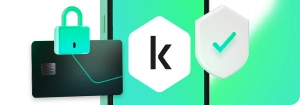
Despite cryptocurrency’s seemingly impenetrable cryptographic nature and its use of distributed ledger technology (the blockchain), which requires transactions to be approved by other holders of the currency, there have been a number of security issues with even some of the biggest and most well-known cryptocurrencies and their respective exchanges. Some of the most recent and notable examples include the attack on one of Japan’s biggest crypto exchanges, Coincheck, resulting in a 496-million-dollar loss in 2018, the 334-million-dollar exploitation of Wormhole (a tool for mediating cryptocurrency transactions), and the 540-million-dollar theft from Sky Mavis’s Ronin Network, both occurring in early 2022. In all cases, cybercriminals were able to successfully hack into the exchanges and then into users’ private accounts causing significant financial damage. The hackers in each of the three incidents are still unknown today and are unlikely to be caught soon.
Although losses for 2023 have reportedly been significantly lower (however, there’s still time left in the year to change that), it’s still not surprising that the safety of cryptocurrency often takes center stage in the community. No matter how much currency is being managed, it’s important that every potential crypto trader and investor knows all that they can about crypto security and how to protect their coin. With the majority of breaches and thefts being avoidable, we’ve decided to create this guide to strengthening your cryptocurrency security, exploring how it’s done, what regulations are in place (and what the future may hold for cryptocurrency regulations), and what the most secure exchanges are (at the time of writing).
With the majority of domestic cybercriminal acts being avoidable in the cryptocurrency space, we’ve compiled a list of best practices that everyone should follow, whether it’s your first time exchanging coin or you’re an experienced trader.
Be Aware of Crypto Scams
Now this might seem obvious and easy at first, but it’s worth pointing out that scammers are a serious threat to crypto enthusiasts (especially as law enforcement around the world is still struggling to control the spread of this type of crime), particularly newcomers. Common scamming vectors and examples include forged airdrops (a popular method used by blockchain creators to distribute their tokens), phishing attempts, promotions that mimic known exchanges in order to harvest your credentials, or fake websites that offer very high rates of return, but simply steal your coin or access details.
Use a Secure Wallet
Even though this too might seem obvious, having a secure wallet to store your coins in is one of the easiest ways to keep hackers out of your hard-earned digital currency. In general, there are two different types of wallets: hot wallets and cold wallets. A “hot” wallet is completely virtual and usually offered by the exchange itself. They are fast, inexpensive, and generally easier to use (especially for new crypto enthusiasts), however, because of their digital nature, they are much more exposed to malicious online activity and cybercriminals at large. It is for this reason that many crypto users choose a “cold” wallet storage solution. A “cold” wallet is a physical piece of hardware used by cryptocurrency holders to protect and store their coin in an offline space. They work through the use of a PIN code and private cryptographic keys via a process called “crypto bridging” and come in a variety of different formats.
If you choose this means of storage, we recommend additional security measures. In the case of theft or loss, many cold storage wallets come with a recovery or “seed phrase” (usually consisting of 12-24 randomly generated words or characters). For this unchanging phrase, we recommend using a password manager (sometimes referred to as a password vault) to keep it secure. This is because even if a password manager is hacked, it is almost impossible to hack the encrypted data inside. Password managers also provide password generators for making strong passwords (12-14 characters containing a mix of special characters, numbers, uppercase, and lowercase letters) if you choose to make your own recovery phrase.
Enable Multi-Factor Authentication
It is generally recommended that MFA or multi-factor authentication (and 2FA or two-factor authentication) is enabled on all devices where possible. In the case of your crypto account, hot and cold wallets, this measure is an absolute necessity and essential to the protection of your coin. More and more, multi-factor authentication is becoming a security standard and its various methods of identification (from biometric scanning to public key infrastructure) are a great way to stop any of your crypto credentials from being hacked and stolen.
Avoid Public Wi-Fi
Undertaking transactions over public Wi-Fi, whether via an online exchange with a hot wallet or remotely via a cold wallet, is extremely risky as the connections are often easily hacked by even the most junior of hackers. As a result, if you have to make a trade whilst you’re on the move or traveling, we recommend always using a virtual private network or VPN. Using a trusted VPN, like Kaspersky’s VPN connection software, allows you to connect to your exchange’s servers and/or broadcast your transaction to the blockchain via a secure encrypted digital tunnel. This tunnel protects your wallet and coins from the potential dangers of public Wi-Fi and unsecured internet connections when you’re on the move. It does this by hiding and redirecting your IP address through a specially configured server run by the VPN host, which makes the VPN server your data source. As your new data source, third parties and your ISP (Internet Service Provider) cannot see what data you send and receive, and what websites you’re visiting. If you’d like to learn more about how VPNs work, you can read our dedicated article here.
Current Cryptocurrency Regulations
As it stands, the US has taken an uneven approach to cryptocurrency regulations. Financial market regulators are cracking down on areas where fraud is rampant, and the Biden administration released its roadmap to mitigating crypto risk earlier this year. In general, the government plans to treat cryptocurrencies as a type of security and has attempted to regulate the exchanges themselves, as opposed to the coins that users trade. However, there is currently nothing major in place: banks are not prohibited from offering crypto services and crypto investors are still being defrauded of millions (and sometimes billions) of dollars.
The cryptocurrency community has attempted to regulate itself since 2014, with the introduction of the CCSSs, or Cryptocurrency Security Standards. Created by academics, experts in the field, and security specialists, the CCSSs aim to provide an accessible framework for evaluating and comparing the security of different cryptocurrencies. It also hopes to reduce the risk of funds being lost to human error, fraud, and natural disasters. The standards cover 10 criteria:
- Key Generation: How cryptographic keys are generated and protected.
- Keyholder Authentication: How the identity and authorization of keyholders are verified.
- Key Usage: How the cryptographic keys are used to sign transactions and other operations.
- Keyholder Authorization: How keyholders’ roles and responsibilities are defined.
- Key Storage: How cryptographic keys are stored and backed up.
- Key Recovery: How cryptographic keys can be recovered in case of emergency.
- Key Compromise Policy: How the organization responds to a suspected or confirmed compromise of a cryptographic key.
- Number of Keyholders: How many keyholders are required to perform a transaction.
- Wallet Creation: How wallets are created and configured to store cryptographic keys.
- Audit: How the crypto organization monitors and reviews the security of its cryptocurrency and its processes.
Each criterion comes with a level of compliance: Level I (Basic), Level II (Standard), and Level III (Advanced). By following these regulations and scoring a high level of compliance, cryptocurrency providers and organizations can start to bring some much-needed confidence to markets, which are still considered largely volatile.
New Cryptocurrency Regulations
As of the time of writing this article, the news outlet Reuters reported that a key congressional committee had recently advanced a bipartisan bill aiming to develop a solid regulatory framework. The bill itself would legally define when a cryptocurrency is a security or a commodity, whilst expanding the CFTC’s (Commodity Futures Trading Commission) oversight of the crypto sector and confirming the Securities and Exchange Commission’s jurisdiction. Equally, lawmakers are set to consider another bill giving the Federal Reserve the power to write requirements for issuing stablecoins (cryptocurrencies pegged to the value of government-issued currencies). In the UK and Europe, regulations surrounding digital currencies have already been laid out, giving US policymakers reason to move proceedings along more quickly due to the fear of being left behind globally.
What is the Most Secure Crypto Exchange?
Discovering which crypto exchange is the most secure can be difficult with the constant evolution of the crypto industry and the fluctuations of various currencies and exchanges. However, since the inception of Bitcoin, a number of reputable and secure exchanges have managed to establish themselves in this often turbulent space. For those unfamiliar with how crypto exchanges work, they are digital trading portals that act much in the same manner as a brokerage and trading platform would: each exchange allows you to buy, sell, and speculate cryptocurrencies with other traders. Exchanges are either centralized, managed by one corporate organization (like a brokerage would guarantee the security of its users’ trades), or decentralized, the exchanges distribute the security and verification of trades to those who are willing to join the network (much like the blockchain itself). According to Forbes magazine, the most secure crypto exchanges of 2023 are Coinbase (founded in 2012), Gemini (founded in 2015), Crypto.com (founded in 2016) and Kraken (founded in 2011).
Due to the digital nature of cryptocurrency, whether you’re a dedicated trader or a beginner just looking to trade a few coins online, comprehensive cybersecurity software will always be the base of any security measures you take. That’s why we recommend our own cybersecurity solution: Kaspersky Premium Plan. Our plan comes with an award-winning antivirus, remote assistance, existing threat removal, 24/7 support, and private uninterrupted browsing. It’s the ideal way to secure and protect all of your personal data and keep your operating devices free from every kind of malware, leaving you to trade as much coin as you want.
Related articles:
- What are Password Managers and are they Safe?
- Common Cryptocurrency Scams and How to Avoid Them
- What is Cryptocurrency and How Does it Work?
- What is Bitcoin?
- What are NFTs and How Do They Work?
- NFT Scams and How To Avoid Them
- What is Steganography and How Does It Work?
Recommended products:


